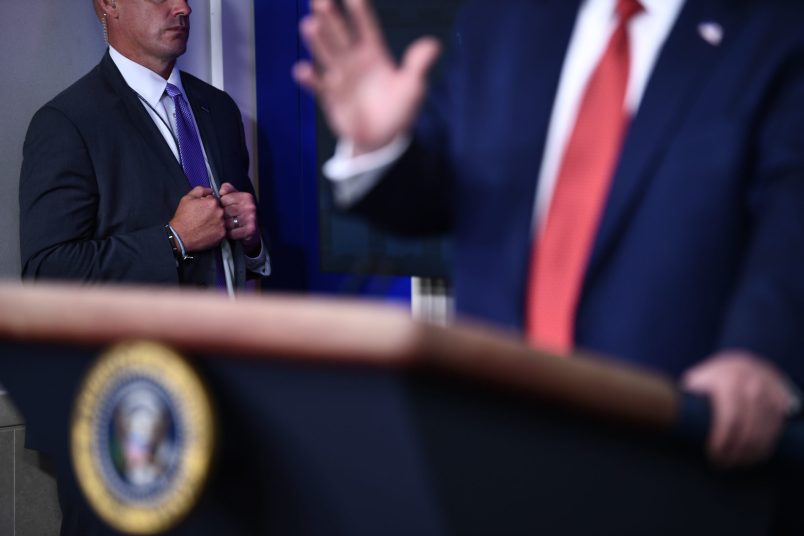The case of the missing Jan. 6 Secret Service text exchanges keeps unfolding: The DHS inspector general’s office drafted a statement that would have alerted Congress to the lost text messages at least a month earlier, but ultimately chose not to publish it.
A nonpartisan government watchdog group made the draft statement public today.
On April 1, career staff at the Department of Homeland Security’s Office of Inspector General approved language for a draft notification that would’ve gone out in the inspector general’s semiannual report to Congress in June. The notification detailed the inspector general’s office’s difficulties obtaining text messages and other documents from the Secret Service — material that has since become central to some of the lingering questions around the Jan. 6 insurrection.
Documents provided to the Project on Government Oversight (POGO), including the draft notification itself, show that the language had been approved by top staffers within the inspector general’s office and their Office of Counsel.
Yet the draft was not ultimately made public. It’s another piece of a pattern in which Inspector General Joseph Cuffari did not alert Congress that key information had gone missing, according to the watchdog group.
“Cuffari and his inner circle killed off an effort by rank-and-file watchdog staff to tell Congress about dire accountability roadblocks,” Liz Hempowicz, POGO’s director of public policy, told TPM.
The draft notification was twice as long as the letter Cuffari eventually sent to Congress on July 13, and included details that hadn’t made it into the letter.
It states, for example, that the records the Secret Service did produce were heavily redacted, and that the agency “did not indicate who approved or applied the redactions or why such redactions were originally made.”
The draft also reveals that on February 23, over two months after the inspector general’s office renewed its request for text exchanges between 24 Secret Service agents from around the time of the insurrection, the Secret Service “claimed inability to extract text message content” due to a mobile phone system migration carried out in “April 2021” which “wiped all data.” (The Secret Service later revealed that the system migration project was undertaken over three months, and began in January.)
There are other surprising details in the draft notification that are not included in Cuffari’s July letter to Congress. For example, the notification states that the Secret Service agents interviewed “regularly indicate they will not provide documents directly to OIG without the documents first going through an internal review.”
It also notes that the review was carried out “without stating any authority supporting delaying or withholding requested information from OIG.”
Cuffari’s July letter to Congress places the blame on DHS employees, claiming that “DHS personnel have repeatedly told OIG inspectors that they were not permitted to provide records directly to the OIG,” and that the records had to be reviewed by DHS attorneys.
Text messages from other, former high-ranking DHS officials from around the time of the insurrection were also erased. An earlier POGO report and subsequent reporting by the Washington Post revealed that Cuffari’s office had been alerted to those text erasures as well. In a letter grilling Cuffari released on Wednesday, Chair of the Senate Homeland Security and Government Affairs Committee Sen. Gary Peters (D-MI) wondered why Cuffari “did not share that information with Congress.”
“This is the highest profile review his office is conducting, and of massive interest to Congress and the American people,” Hempowicz said, “and Cuffari’s top aides failed to meet the moment every step of the way.”







Why is this guy still in his role? He’s been interfering with this effort since April and he’s still there in August? Good Heavens…
Keep your friends close and your enemies closer, perhaps?
Hey now there’s no skullduggery going on, it’s just the right hand didn’t want the left hand knowing, well anything that the head didn’t want it to know.
He knew the Committee wanted the texts.
He knew about the text wipes.
He knew what his responsibilities were.
He didn’t demonstrate adherence to his responsibilities. He did the opposite of his job. At a moment of national crisis, he used his position to “cover up” as long as he could.
And the longer he remains, the more interference he can put up.
Needs to stop - this guy is a bigger danger to democracy at this point than most of the others we’re dealing with. He’s joyfully obstructing evidence without any interference.